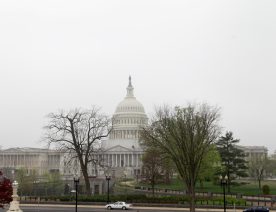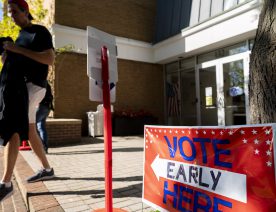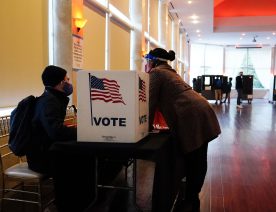
April 3, 2024
The public is divided over what characteristics are essential to the United States as a country and disagree about the extent to which certain rights and freedoms are important for American identity.
What characteristics define the country’s identity? Most adults agree that having a democratically elected government and the ability of people living here to get good jobs and achieve the American dream are extremely or very important to the U.S. identity. There is less agreement on the importance of a shared American culture and values, the mixing of cultures and values from around the world, a capitalist or free market economy, and the ability of people to come from other places in the world to escape violence or find economic opportunities.
While most consider democracy important to the U.S. identity, fewer view a culture grounded in Christian religious beliefs, or one established by the country’s early European immigrants as important.
Democrats and Republicans agree on the importance of the ability of people living here to get good jobs and achieve the American dream in the country’s identity, but there are partisan differences regarding the importance of other aspects that matter for the country’s identity.
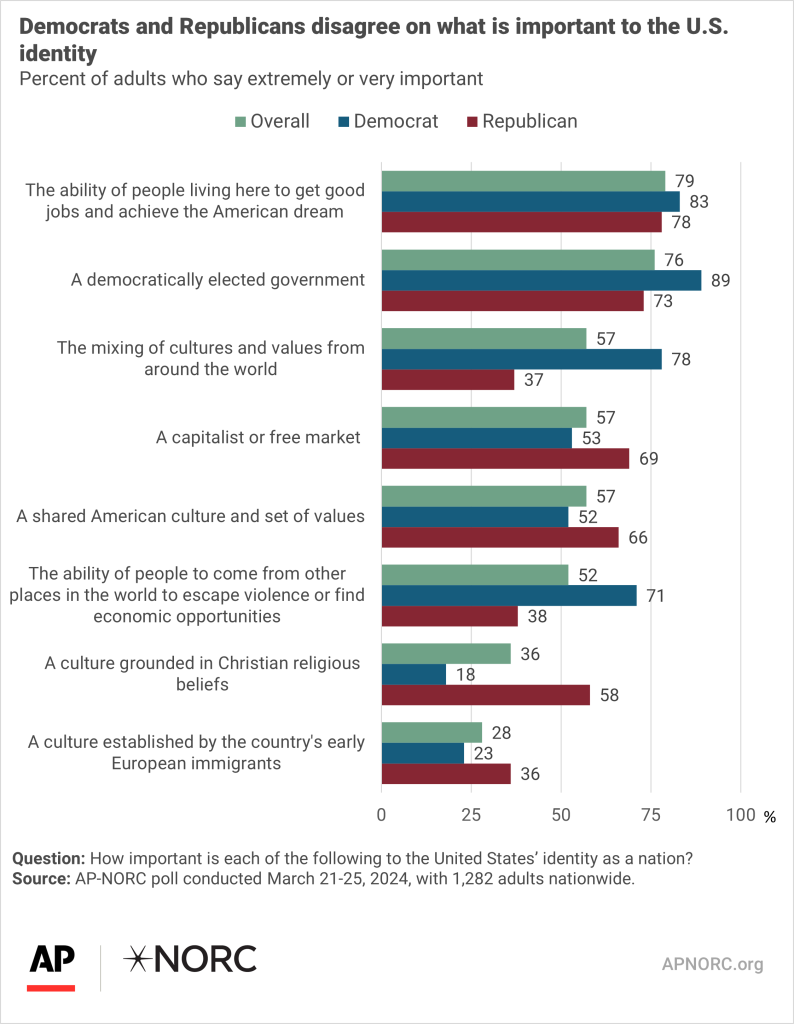
The prevailing attitude is that democracy is a good, albeit imperfect, system of government, but that it is not functioning well these days. About 7 in 10 adults believe that democracy is a good system of government even though it sometimes has problems. Only 21% of the public think it is the greatest system of government and just 8% think it’s not a good system. Only 3 in 10 think democracy in the United States is functioning well, while about half believe it is a poorly functioning democracy.
Most Democrats and Republicans agree that democracy is a good system of government even though it sometimes has problems (71% vs 66%), and 53% of both Democrats and Republicans believe democracy is functioning poorly in the U.S.
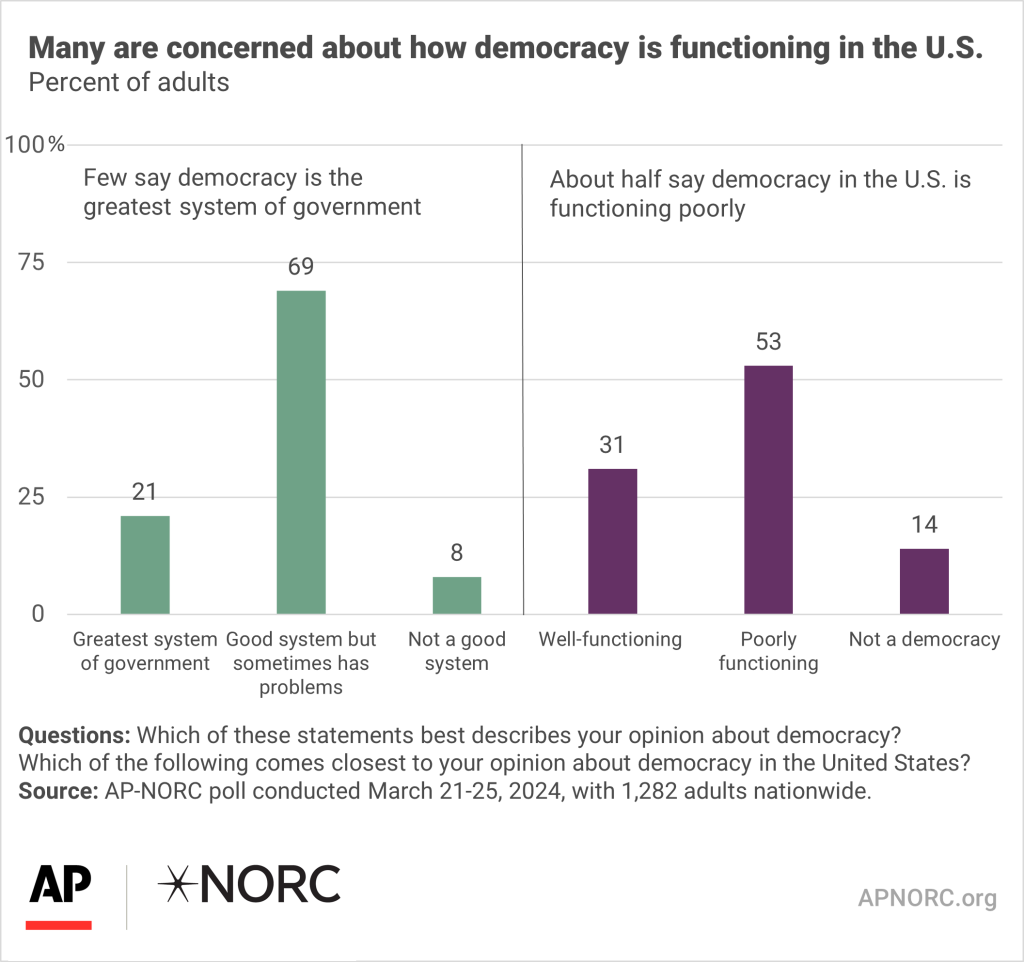
Sixty-one percent of adults see the Constitution as a living document that should be interpreted to reflect current values and reality and 37% think it should be interpreted to reflect the values and reality at the time of its adoption. There are large partisan differences. Eighty-one percent of Democrats say the Constitution is a living document while 60% of Republicans think the Constitution should be interpreted to reflect the values and reality at the time of its adoption.
Large majorities of the public agree when it comes to the importance of many of the rights and freedoms provided in the Bill of Rights, various laws, or court rulings.
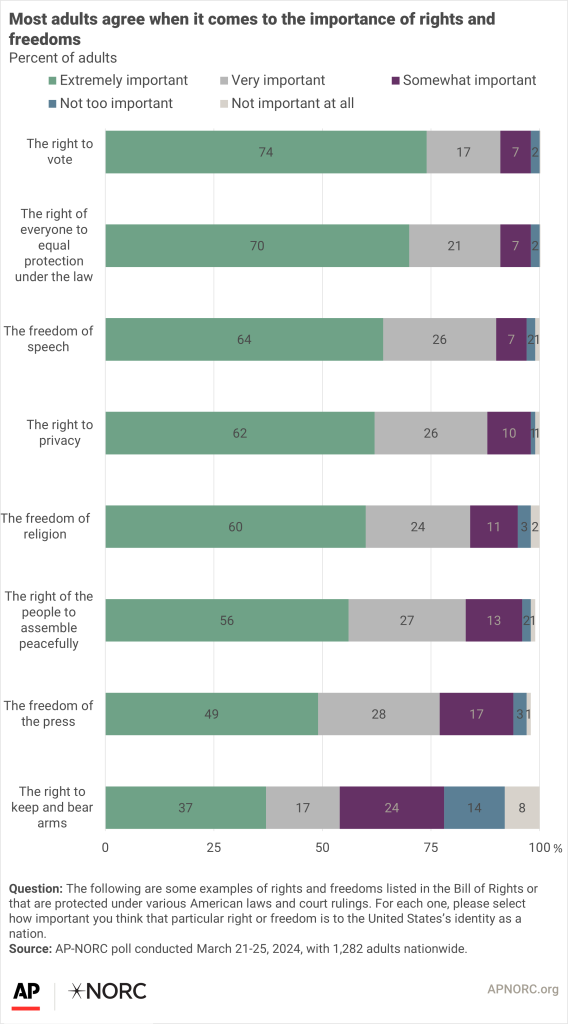
There is little partisan disagreement except when it comes to the right to keep and bear arms and freedom of the press.
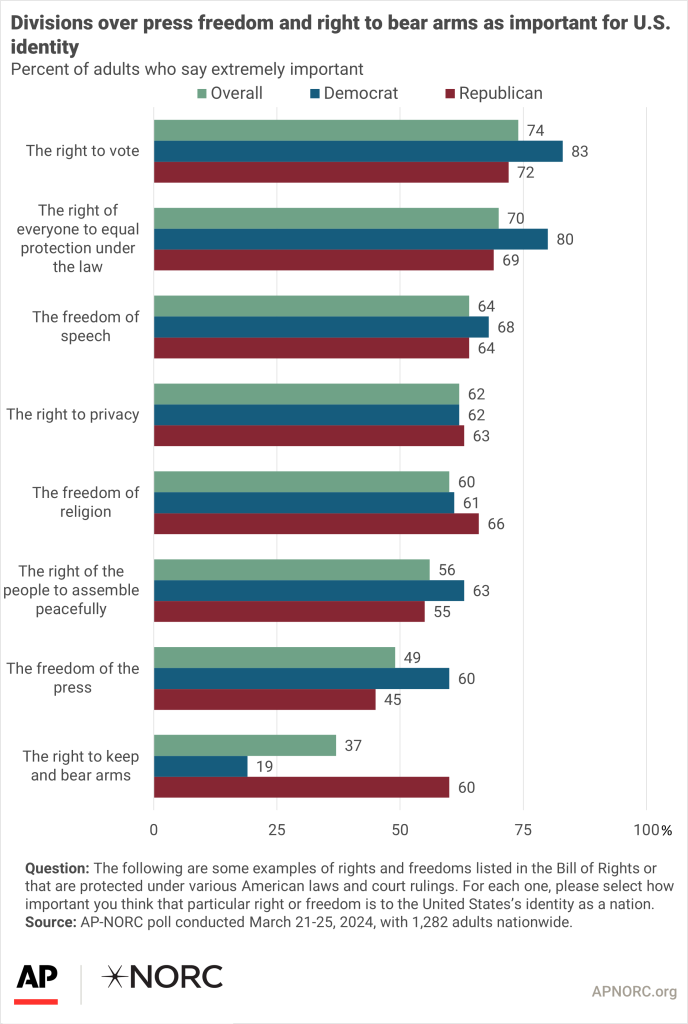
Although a majority of the public believe having a democratically elected government is important to the U.S. identity, most adults don’t think institutions or political party leaders are doing a good job of upholding democratic values. Just over half think Congress, the Republican Party, and Donald Trump are doing a very or somewhat bad job at upholding democratic values in the U.S., while just under half say the same about the Democratic Party, the Supreme Court, and Joe Biden. Just about a third give poor marks to their state government.
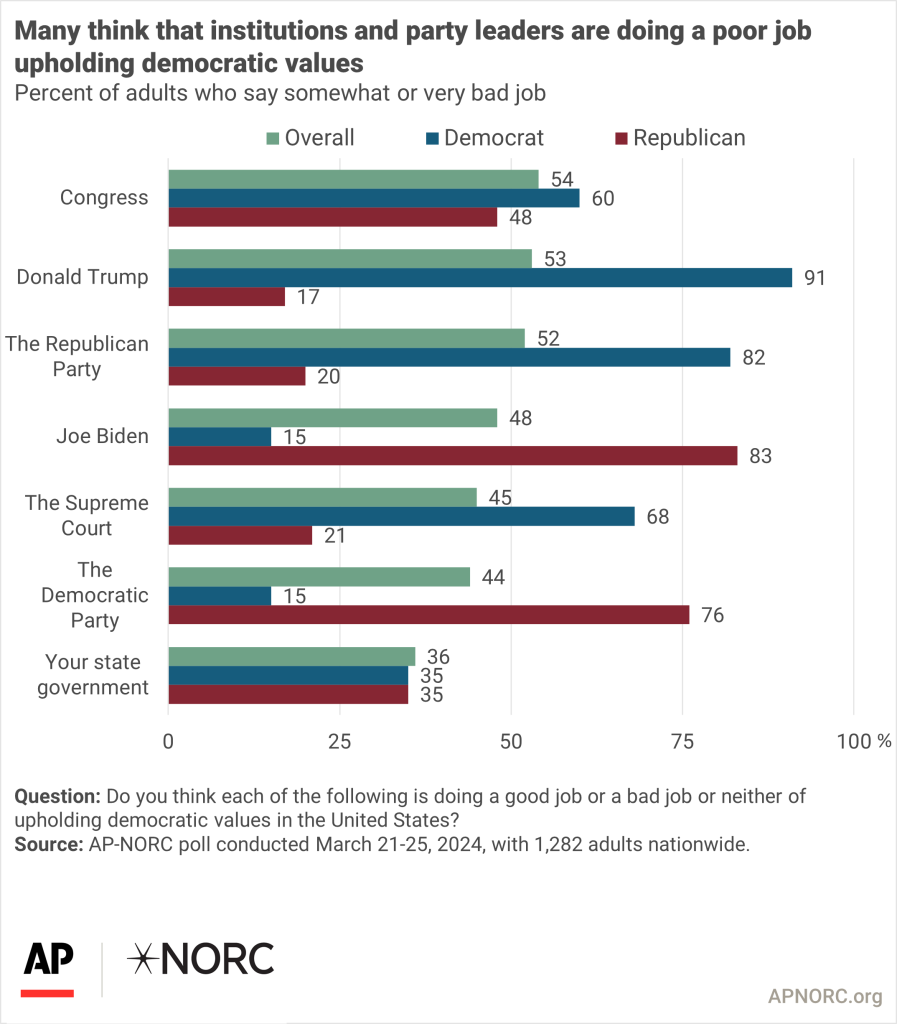
The nationwide poll was conducted March 21-25, 2024 using the AmeriSpeak® Panel, the probability-based panel of NORC at the University of Chicago. Online and telephone interviews using landlines and cell phones were conducted with 1,282 adults. The margin of sampling error is +/- 3.8 percentage points.
- Suggested Citation: AP-NORC Center for Public Affairs Research. (March 2024) https://apnorc.org/projects/most-say-democracy-is-important-for-the-u-s-identity-but-few-think-it-is-functioning-well/





